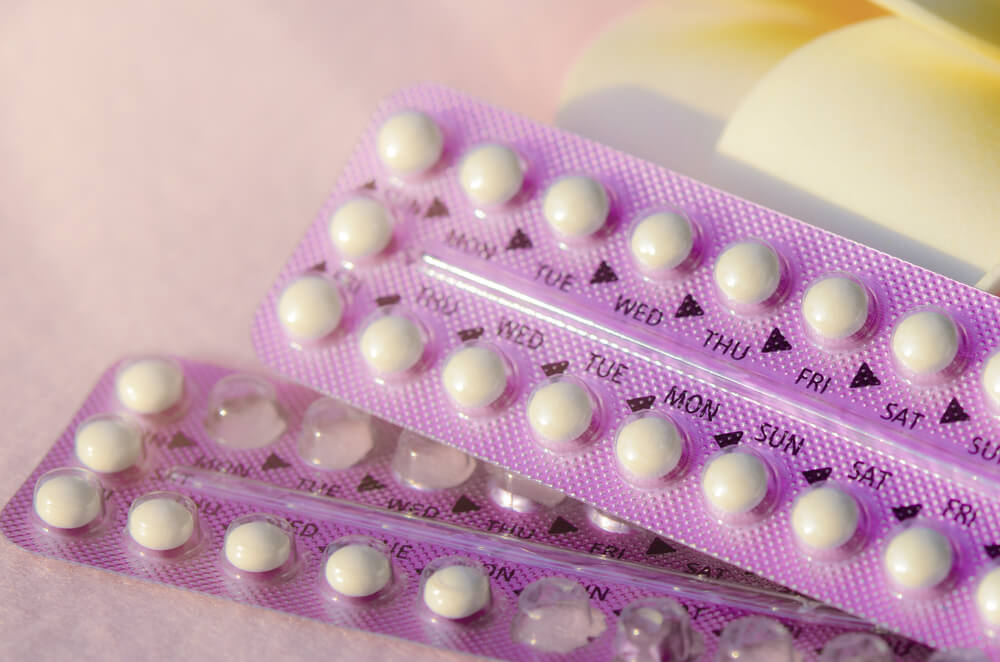You may be wondering when to start birth control and may find yourself asking questions about how to use it. You might be thinking, “do you have to wait for your period to start birth control?” or “how long does it take for birth control pills to work?” Here at New Age Women’s Health, we are happy to use our extensive experience in gynecological care to share some useful tips about the process.
Using birth control is easy!
The pill is an easy form of contraception to use. Simply swallow a pill each day! You may be wondering, “do you have to wait for your period to start birth control?” The answer is no! It is completely up to you when to start birth control. You can start taking the pill as soon as you get a prescription, any weekday, any time of day, and at any time of your menstrual cycle. Once you have started taking the pill, you might ask yourself, “how long does it take for birth control pills to work?” Depending on what type of pill you are prescribed by your OB/GYN or physician and when you start, you may need to use backup birth control, like condoms, for up to seven days.
How can I get the pill?
Obtaining birth control pills is easy with the help, and a prescription, from your healthcare provider! It is best to start by researching gynecological care near you and determining the best fit for you and your needs. Most birth control pills are covered by insurance at little or no cost for you. Most insurance plans cover doctor’s visits related to birth control too. Still, it is best to reach out to your insurance carrier to check your eligibility, coverage and to find a provider in-network with your plan.
Even without insurance, you still have options to obtain birth control. Depending on your income and legal status, there are government programs available to help navigate the costs of medication and care. Because birth control pills require a prescription, you will need to visit a doctor, nurse, or healthcare center near you. Your provider will work with you to discuss options for birth control to fit your needs and health history best.

How effective are birth control pills?
Birth control pills are an effective form of pregnancy prevention with a pregnancy rate of up to 9%. Take care in following your medication instructions and use them correctly, and you will be covered! Use a phone alarm or calendar alerts to help you maintain a consistent schedule, and be sure to start your new pill packs on time. Birth control even has health benefits, such as lightening your period, reducing menstrual cramps, creating a more regular cycle, and preventing ectopic pregnancy.
The pill can also help with acne, PMS, anemia, cysts and reducing the risks of certain cancers. Some medications interact with and can decrease the efficiency of birth control pills, so be sure to read instructions and interactions before beginning your medication. Your gynecological care provider is there to help you decide when to start birth control and how to navigate the process! It is important to remember that although birth control prevents pregnancy, it will not protect you against STIs, STDs, and HIV. Be sure to use condoms when engaging in sexual activity.
Who can take Birth Control?
As long as you are not already pregnant, your doctor can prescribe birth control pills to you at any time and age. When to start birth control is up to you! When you are nearing menopause, it may be worth asking your doctor about hormone replacement therapy as an alternative. If you have health concerns such as high blood pressure, being a smoker, history of heart disease, circulation problems, history of breast cancer or stroke, have migraine headaches, liver disease, and more, the pill may not be right for you.
It is important to be evaluated by your doctor or gynecologist before starting birth control pills, as with any medication. Have your care team help decide what is best for your needs.
What kinds of pills are there?
The two types of birth control pills are progestin-only and combination pills, both of which are available through many different brands with various generic options. Combination pills, which are the most commonly used type of pill, have two hormones: progestin and estrogen. Taking the combination pill every day will prevent pregnancy, and although you do not have to take it at the exact same time every day, it is recommended to help form good habits and consistency in taking your pill.
It is helpful to set an alarm or mark your calendar as a reminder. Most combination pills come in 28-day or 21-day packs. You are probably wondering, “how long does it take for birth control pills to work” or “do you have to wait for your period to start birth control?” When you start taking the combination pill, as long as you start the pack within five days from your period, you will be protected from pregnancy right away! Otherwise, use a backup form of contraception such as condoms for seven days to allow the pill to begin working in your system.
28-day packs:
You will take one pill every day for four weeks consecutively, starting a new pack on the 29th day. The last pills in a 28-day pack are called placebo pills because they do not contain any hormones. They are there to help keep you consistent in your pill taking and are usually made of iron and similar supplements. During that week, you will also get your period, and you will still be protected from pregnancy throughout as long as you start your next pill pack on time!
21-day packs:
In a 21-day pack of birth control, a pill will be taken every day consecutively for three weeks. Then in week four, you will take no pills, which is also when you will have your period. You must take every pill in these packs because there are no placebo or reminder pills. Similar to 28-day birth control, you will remain protected from pregnancy throughout as long as you begin the pack immediately after those seven days. As suggested before, an alarm or a calendar reminder helps keep you on track with your medications.
90-day packs:
There are types of combination pills containing 12 weeks of hormone-containing pills, which you will take consecutively, followed by a week of hormone-free placebo pills. Your period will come every three months on this pill pack, and the hormones will prevent pregnancy throughout the course of the medication.
With all combination pills, there is an option to skip the hormone-free placebo or reminder pills to skip or stop your period by simply starting a new pack of birth control pills. This method may lead to some light bleeding or spotting, which is completely normal. It is safe to use birth control pills to skip your period, and this is extremely helpful if a special event or vacation is around the corner and you do not want your period!
Progestin-only pills, also called mini-pill, do not contain estrogen. This form of birth control pills must be taken within 3 hours at the same time each day to work as contraception. It begins working 48 hours after your first dose, but if you engage in intercourse before then, be sure to use backup birth control such as a condom.
Does the pill come with any negative side effects?
Birth control pills, like any medication, can cause side effects, most of which resolve after taking the pill for a few months. Common side effects include bleeding or spotting between periods, nausea, headache, and tender or sore breasts. There are so many different options for birth control pills, so if you find that one makes you feel unwell, you can easily switch with the help of your healthcare provider of gynecological care. Remember that if you stop taking the pill at any time, be sure to use backup protection such as condoms to prevent pregnancy. Severe risks from birth control are possible, but they are unlikely. For more information about side effects and risks, speak to your nurse or doctor.
What happens if I miss a pill?
Birth control pills are most effective when taken daily on schedule, but sometimes, these things can be forgotten! You just have to know what to do. Speak to your healthcare provider about the best course of action for your specific kind of pill pack. Progestin-only pills, also called the mini-pill, are only effective when taken within the same three-hour window each day. If a dose is taken outside of this window, use backup birth control like a condom for the following 48 hours.
If it has been less than 48 hours since you last took your birth control, take the missed dose right away and take the remaining pills on schedule, even if you must take two in one day. Backup contraception, such as condoms, is necessary until you have once again taken hormone-containing pills for at least seven days straight. If you miss more than two doses of birth control, be sure to reach out to your primary care physician or provider of gynecological care about the next steps in preventing pregnancy.

Are you wondering when to start birth control after pregnancy?
Because it is possible to become pregnant right after a pregnancy, speak with your healthcare provider about beginning birth control as soon as you are able. The mini-pill, or progestin-only pill, can be taken immediately following childbirth, a miscarriage, or an abortion. In terms of the combination pill, this form of birth control can be taken right after a miscarriage or abortion. It is generally recommended to wait six weeks after delivery to begin taking the combination pill once again.
How do I stop taking the pill when I want to become pregnant?
This is easy – just stop taking your birth control! Whether you are on a combination pill or mini pill pack, you can become pregnant upon stopping your medication. It may take a few months to get back to your pre-pill cycle, but you may still become pregnant in this window of time. On average, your period takes 1-2 months to return to normal which is not considered a delay in fertility. If you have stopped your pills and your period has not returned after 3 months, you should notify your doctor.
When to start birth control pills is up to you, and we at New Age Women’s Health are here to help answer any questions you may have and provide the best gynecological care. All of the doctors in our practice are family, and we treat our patients like family, too! Our goal is to provide a positive, friendly, and empowering experience for all. Visit our website today to get started on your OB/GYN journey. We can’t wait to hear from you!





